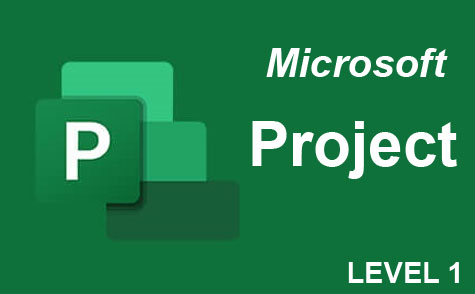Online Class: How to Win Arguments

no certificate
with CEU Certificate*
-
15Lessons
-
22Exams &
Assignments -
687Students
have taken this course -
7Hours
average time -
0.7CEUs
Course Description
Mastering the Art of Persuasion: Dive Deep into Winning Arguments
In the realm of debate, persuasion, and discourse, the ability to construct a compelling argument is both an art and a science. Our groundbreaking course, "Winning Arguments," seeks to meld these two realms to cultivate a powerful skill set in you.
Two key objectives guide this course:
-
Immerse learners in the rich tapestry of classical arguments, equipping you to craft resonant and persuasive oral or written content, be it for the boardroom, the stage, or daily life.
-
Sharpen essential cognitive tools: critical thinking, synthesis, articulate writing, keen evaluation, and introspective reflection.
The art of argumentation has its roots in the historic streets of Athens, where pioneering minds like Socrates, Plato, and Aristotle laid the bedrock for modern rhetoric. Harnessing the timeless techniques championed by these luminaries, our course intricately weaves historical depth with contemporary application.
Across fifteen meticulously crafted lessons, learners will journey from foundational concepts to advanced techniques. Every module is structured to introduce the topic, delve into its historical and contemporary relevance, and furnish practical strategies peppered with real-world examples.
Each lesson culminates in an interactive assessment, ensuring that the knowledge gained is both understood and applicable. Those who navigate this journey with dedication and achieve a grade of 70% or higher will be rewarded with accredited CEUs, a testament to their prowess in the art of argumentation, a credential to augment their professional journey.
Embark on this journey and master the age-old art of winning arguments, blending the wisdom of the ancients with modern techniques for unparalleled persuasive prowess.
- Completely Online
- Self-Paced
- Printable Lessons
- Full HD Video

- 6 Months to Complete
- 24/7 Availability
- Start Anytime
- PC & Mac Compatible
- Android & iOS Friendly
- Accredited CEUs

Course Lessons
Lesson 1. Deconstructing Arguments
 Lesson 1 Video
Lesson 1 Video Review Practice Worksheet: Lesson-1-StudyGuide-19977.pdf
Review Practice Worksheet: Lesson-1-StudyGuide-19977.pdf Complete Assignment: An Introduction
Complete Assignment: An Introduction Assessment: Lesson 1 Exam
Assessment: Lesson 1 Exam
Lesson 2. Unveiling the Power of Critical Analysis
 Lesson 2 Video
Lesson 2 Video Review Practice Worksheet: Lesson-2-Activity-19979.pdf
Review Practice Worksheet: Lesson-2-Activity-19979.pdf Assessment: Lesson 2 Exam
Assessment: Lesson 2 Exam
Lesson 3. Types of Logical Arguments
 Lesson 3 Video
Lesson 3 Video Review Practice Worksheet: Lesson-3-WorkSheet-19981.pdf
Review Practice Worksheet: Lesson-3-WorkSheet-19981.pdf Assessment: Lesson 3 Exam
Assessment: Lesson 3 Exam
Lesson 4. Persuasion Through the Ages: Mastering Aristotle's Timeless Techniques
 Lesson 4 Video
Lesson 4 Video Review Practice Worksheet: Lesson-4-WorkSheet-19983.pdf
Review Practice Worksheet: Lesson-4-WorkSheet-19983.pdf Assessment: Lesson 4 Exam
Assessment: Lesson 4 Exam
Lesson 5. Dialectics and Dissection: Mastering the Art of Analyzing Arguments
 Lesson 5 Video
Lesson 5 Video Review Practice Worksheet: Lesson-5-Downloadable-19984.pdf
Review Practice Worksheet: Lesson-5-Downloadable-19984.pdf Complete: Lesson 5 Activity
Complete: Lesson 5 Activity Assessment: Lesson 5 Exam
Assessment: Lesson 5 Exam
Lesson 6. Understanding Evidence and Arguments: A Comprehensive Guide
 Lesson 6 Video
Lesson 6 Video Review Practice Worksheet: Lesson-6-HomeWork-19985.pdf
Review Practice Worksheet: Lesson-6-HomeWork-19985.pdf Complete: Lesson 6 Activity
Complete: Lesson 6 Activity Assessment: Lesson 6 Exam
Assessment: Lesson 6 Exam
Lesson 7. Spotting Logical Flaws
 Lesson 7 Video
Lesson 7 Video Review Practice Worksheet: Lesson-7-WorkSheet-19986.pdf
Review Practice Worksheet: Lesson-7-WorkSheet-19986.pdf Complete: Lesson 7 Activity
Complete: Lesson 7 Activity Assessment: Lesson 7 Exam
Assessment: Lesson 7 Exam
Lesson 8. Dissecting Errors in Reasoning: A Comprehensive Guide to Logical Fallacies
 Lesson 8 Video
Lesson 8 Video Review Practice Worksheet: Lesson-8-WorkSheet-19987.pdf
Review Practice Worksheet: Lesson-8-WorkSheet-19987.pdf Assessment: Lesson 8 Exam
Assessment: Lesson 8 Exam
Lesson 9. Mastering the Art of Synthesizing Evidence with Critical Thinking
 Lesson 9 Video
Lesson 9 Video Review Practice Worksheet: Lesson-9-WorkSheet-19988.pdf
Review Practice Worksheet: Lesson-9-WorkSheet-19988.pdf Assessment: Lesson 9 Exam
Assessment: Lesson 9 Exam
Lesson 10. Rhetoric Fundamentals: Invention and Style
 Lesson 10 Video
Lesson 10 Video Review Practice Worksheet: Lesson-10-WorkSheet-19989.pdf
Review Practice Worksheet: Lesson-10-WorkSheet-19989.pdf Complete: Lesson 10 Activity
Complete: Lesson 10 Activity Assessment: Lesson 10 Exam
Assessment: Lesson 10 Exam
Lesson 11. Arranging Your Argument: From Good to Great
 Lesson 11 Video
Lesson 11 Video Review Practice Worksheet: Lesson-11-WorkSheet-19990.pdf
Review Practice Worksheet: Lesson-11-WorkSheet-19990.pdf Complete: Lesson 11 Activity
Complete: Lesson 11 Activity Assessment: Lesson 11 Exam
Assessment: Lesson 11 Exam
Lesson 12. Lessons in Memory and Delivery for Persuasive Argumentation
 Lesson 12 Video
Lesson 12 Video Review Practice Worksheet: Lesson-12-WorkSheet-19991.pdf
Review Practice Worksheet: Lesson-12-WorkSheet-19991.pdf Assessment: Lesson 12 Exam
Assessment: Lesson 12 Exam
Lesson 13. From Ideas to Arguments: Mastering the Critical Writing Process
 Lesson 13 Video
Lesson 13 Video Review Practice Worksheet: Lesson-13-Activity-19992.pdf
Review Practice Worksheet: Lesson-13-Activity-19992.pdf Assessment: Lesson 13 Exam
Assessment: Lesson 13 Exam
Lesson 14. The Art of Argument Evaluation
 Lesson 14 Video
Lesson 14 Video Review Practice Worksheet: Lesson-14-WorkSheet-19993.pdf
Review Practice Worksheet: Lesson-14-WorkSheet-19993.pdf Complete: Lesson 14 Activity
Complete: Lesson 14 Activity Assessment: Lesson 14 Exam
Assessment: Lesson 14 Exam
Lesson 15. The Final Step: Reflecting Critically on Your Argument
 Lesson 15 Video
Lesson 15 Video Review Practice Worksheet: Lesson-15-WorkSheet-19994.pdf
Review Practice Worksheet: Lesson-15-WorkSheet-19994.pdf Lesson discussions: End of Course Poll; Course Comments
Lesson discussions: End of Course Poll; Course Comments Assessment: Lesson 15 Exam
Assessment: Lesson 15 Exam
Learning Outcomes
- Define the foundational components of classical rhetoric, including ethos, pathos, and logos, and explain their roles in persuasive argumentation.
- Demonstrate the ability to construct a persuasive argument by integrating the elements of claim, evidence, and warrant to support a central thesis.
- Apply critical thinking skills to evaluate and construct persuasive arguments by identifying opposing viewpoints and effectively supporting claims with primary and secondary sources.
- Demonstrate the ability to synthesize information from various sources to enhance the clarity and persuasiveness of your argument while maintaining objectivity.
- Construct clear and logical arguments using deductive reasoning by applying appropriate premises and evaluating their soundness in supporting conclusions.
- Identify and differentiate between deductive and inductive arguments by analyzing given examples to determine their validity or probability.
- Define ethos, pathos, and logos as the three classical means of persuasion, identifying their characteristics and how each functions to influence an audience.
- Demonstrate the ability to incorporate ethos, pathos, and logos into a written or spoken argument, providing examples and using the appropriate tools to effectively persuade an audience.
- Identify and separate persuasive elements (ethos, pathos) from factual claims (logos) of an argument to evaluate its validity, soundness, strength, or cogency.
- Recognize the various components of an argument by annotating the exordium, narratio, proposito, partito, confirmatio, refutatio, and peroratio within a text.
- Demonstrate the ability to differentiate between experimental, circumstantial, argumentative, and testimonial evidence in a given argument context
- Identify assumptions and implicit arguments in text, and discuss their impact on the argument's validity and persuasiveness
- Identify and define at least three common logical fallacies within an argument by summarizing the specific flaw in reasoning presented.
- Demonstrate mastery of lesson content at levels of 70% or higher.
Additional Course Information

- Document Your Lifelong Learning Achievements
- Earn an Official Certificate Documenting Course Hours and CEUs
- Verify Your Certificate with a Unique Serial Number Online
- View and Share Your Certificate Online or Download/Print as PDF
- Display Your Certificate on Your Resume and Promote Your Achievements Using Social Media

Choose Your Subscription Plan
No Certificate / No CEUs
This course only
| Includes certificate | X |
| Includes CEUs | X |
| Self-paced |

|
| Instructor support |

|
| Time to complete | 6 months |
| No. of courses | 1 course |
Certificate & CEUs
This course only
| Includes certificate |

|
| Includes CEUs |

|
| Self-paced |

|
| Instructor support |

|
| Time to complete | 6 months |
| No. of courses | 1 course |
Certificates & CEUs
Includes all 600+ courses
| Includes certificate |

|
| Includes CEUs |

|
| Self-paced |

|
| Instructor support |

|
| Time to complete | 12 Months |
| No. of courses | 600+ |
Certificates & CEUs
Includes all 600+ courses
| Includes certificate |

|
| Includes CEUs |

|
| Self-paced |

|
| Instructor support |

|
| Time to complete | 24 Months |
| No. of courses | 600+ |
Related Courses
-
 26 hours
2.6 CEUs
Human Resources Productivity Course Bundle
+ More Info
26 hours
2.6 CEUs
Human Resources Productivity Course Bundle
+ More Info
-
 72 hours
7.2 CEUs
Writing Help Course Bundle
+ More Info
72 hours
7.2 CEUs
Writing Help Course Bundle
+ More Info
-
 3 hours
0.3 CEUs
Job Performance Appraisals - A How To Guide
+ More Info
3 hours
0.3 CEUs
Job Performance Appraisals - A How To Guide
+ More Info
-
 9 hours
0.9 CEUs
Microsoft Project Level 1
+ More Info
9 hours
0.9 CEUs
Microsoft Project Level 1
+ More Info
-
 10 hours
1.0 CEUs
Mastering Sales Skills 101
+ More Info
10 hours
1.0 CEUs
Mastering Sales Skills 101
+ More Info
-
 7 hours
0.7 CEUs
Conflict Resolution
+ More Info
7 hours
0.7 CEUs
Conflict Resolution
+ More Info
-
 6 hours
0.6 CEUs
Goal Setting for Business
+ More Info
6 hours
0.6 CEUs
Goal Setting for Business
+ More Info
-
 5 hours
0.5 CEUs
Kaizen 101 - An Introduction
+ More Info
5 hours
0.5 CEUs
Kaizen 101 - An Introduction
+ More Info
-
 6 hours
0.6 CEUs
Management Essentials
+ More Info
6 hours
0.6 CEUs
Management Essentials
+ More Info
-
 8 hours
0.8 CEUs
Assertiveness Training
+ More Info
8 hours
0.8 CEUs
Assertiveness Training
+ More Info
-
 5 hours
0.5 CEUs
Operations Management 101
+ More Info
5 hours
0.5 CEUs
Operations Management 101
+ More Info
-
 2 hours
0.2 CEUs
Mindfulness in the Workplace
+ More Info
2 hours
0.2 CEUs
Mindfulness in the Workplace
+ More Info
-
 6 hours
0.6 CEUs
Delegation Skills
+ More Info
6 hours
0.6 CEUs
Delegation Skills
+ More Info
-
 8 hours
0.8 CEUs
Crisis Management
+ More Info
8 hours
0.8 CEUs
Crisis Management
+ More Info
-
 5 hours
0.5 CEUs
Recruitment and Retention Strategies
+ More Info
5 hours
0.5 CEUs
Recruitment and Retention Strategies
+ More Info
-
 16 hours
1.6 CEUs
Psychology 101
+ More Info
16 hours
1.6 CEUs
Psychology 101
+ More Info
-
 11 hours
1.1 CEUs
How to Write Effective Policies and Procedures
+ More Info
11 hours
1.1 CEUs
How to Write Effective Policies and Procedures
+ More Info
-
 15 hours
1.5 CEUs
Customer Service 101
+ More Info
15 hours
1.5 CEUs
Customer Service 101
+ More Info
-
 6 hours
0.6 CEUs
Leadership and Supervision
+ More Info
6 hours
0.6 CEUs
Leadership and Supervision
+ More Info
-
 5 hours
0.5 CEUs
Running Effective Meetings
+ More Info
5 hours
0.5 CEUs
Running Effective Meetings
+ More Info
-
 6 hours
0.6 CEUs
Workplace Violence: A Guide to Responding and Preventing
+ More Info
6 hours
0.6 CEUs
Workplace Violence: A Guide to Responding and Preventing
+ More Info
-
 8 hours
0.8 CEUs
Motivational and Public Speaking
+ More Info
8 hours
0.8 CEUs
Motivational and Public Speaking
+ More Info
-
 7 hours
0.7 CEUs
Collaboration Skills
+ More Info
7 hours
0.7 CEUs
Collaboration Skills
+ More Info
-
 9 hours
0.9 CEUs
Introduction to Six Sigma
+ More Info
9 hours
0.9 CEUs
Introduction to Six Sigma
+ More Info
-
 6 hours
0.6 CEUs
Confidence Building
+ More Info
6 hours
0.6 CEUs
Confidence Building
+ More Info
-
 11 hours
1.1 CEUs
Writing Effective Emails in the Workplace
+ More Info
11 hours
1.1 CEUs
Writing Effective Emails in the Workplace
+ More Info
-
 7 hours
0.7 CEUs
Introduction to Ethics
+ More Info
7 hours
0.7 CEUs
Introduction to Ethics
+ More Info
-
 7 hours
0.7 CEUs
Lean Management
+ More Info
7 hours
0.7 CEUs
Lean Management
+ More Info
-
 5 hours
0.5 CEUs
Talent Management for Business
+ More Info
5 hours
0.5 CEUs
Talent Management for Business
+ More Info
-
 5 hours
0.5 CEUs
Critical Thinking Skills
+ More Info
5 hours
0.5 CEUs
Critical Thinking Skills
+ More Info
-
 9 hours
0.9 CEUs
Product Management 101
+ More Info
9 hours
0.9 CEUs
Product Management 101
+ More Info
-
 11 hours
1.1 CEUs
Mediation 101
+ More Info
11 hours
1.1 CEUs
Mediation 101
+ More Info
-
 6 hours
0.6 CEUs
Sustainable Development for Business
+ More Info
6 hours
0.6 CEUs
Sustainable Development for Business
+ More Info
-
 5 hours
0.5 CEUs
Team Building 101
+ More Info
5 hours
0.5 CEUs
Team Building 101
+ More Info
-
 11 hours
1.1 CEUs
Business Writing
+ More Info
11 hours
1.1 CEUs
Business Writing
+ More Info
-
 8 hours
0.8 CEUs
Creating a Positive Work Environment
+ More Info
8 hours
0.8 CEUs
Creating a Positive Work Environment
+ More Info
-
 5 hours
0.5 CEUs
Emotional Intelligence
+ More Info
5 hours
0.5 CEUs
Emotional Intelligence
+ More Info
-
 5 hours
0.5 CEUs
Lawful Employee Termination
+ More Info
5 hours
0.5 CEUs
Lawful Employee Termination
+ More Info
-
 7 hours
0.7 CEUs
Healthy Relationships
+ More Info
7 hours
0.7 CEUs
Healthy Relationships
+ More Info



